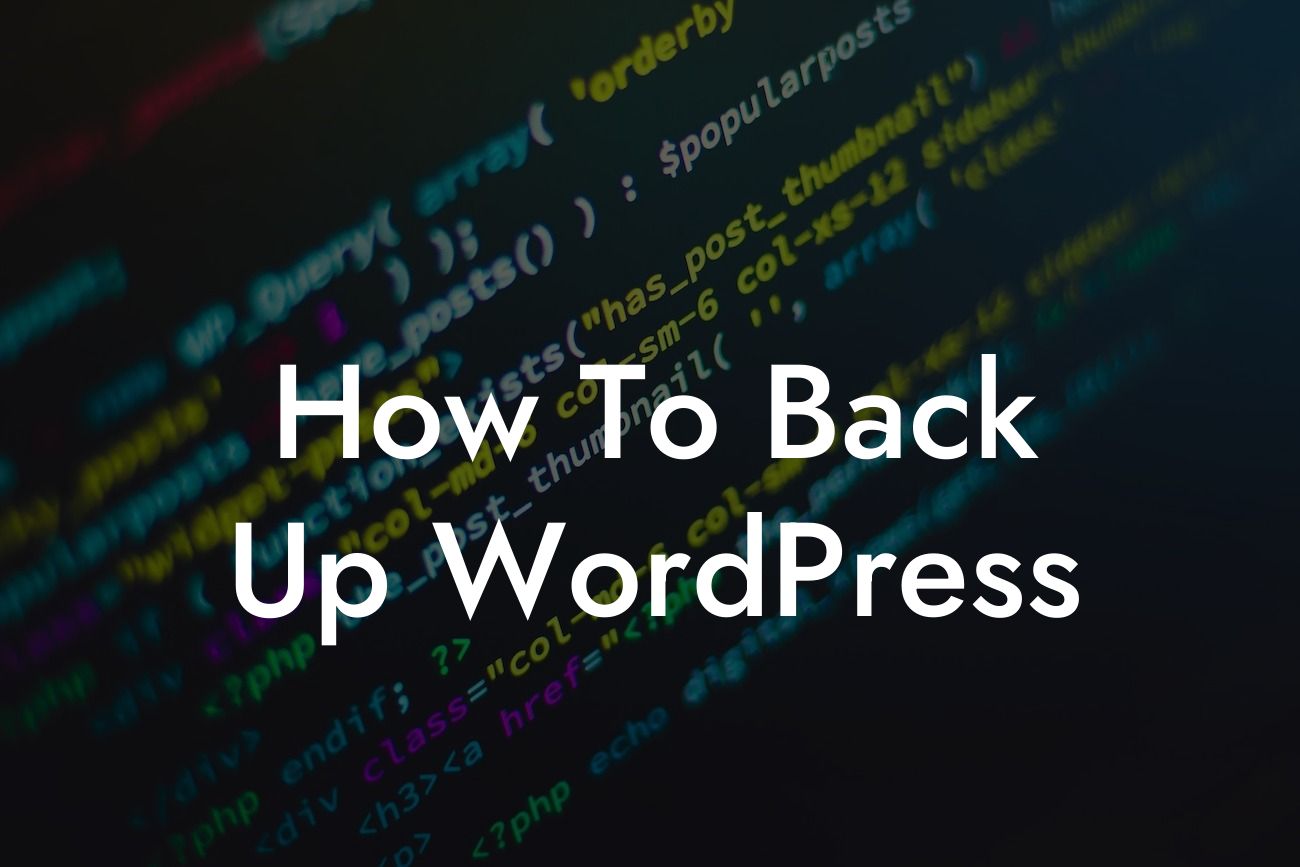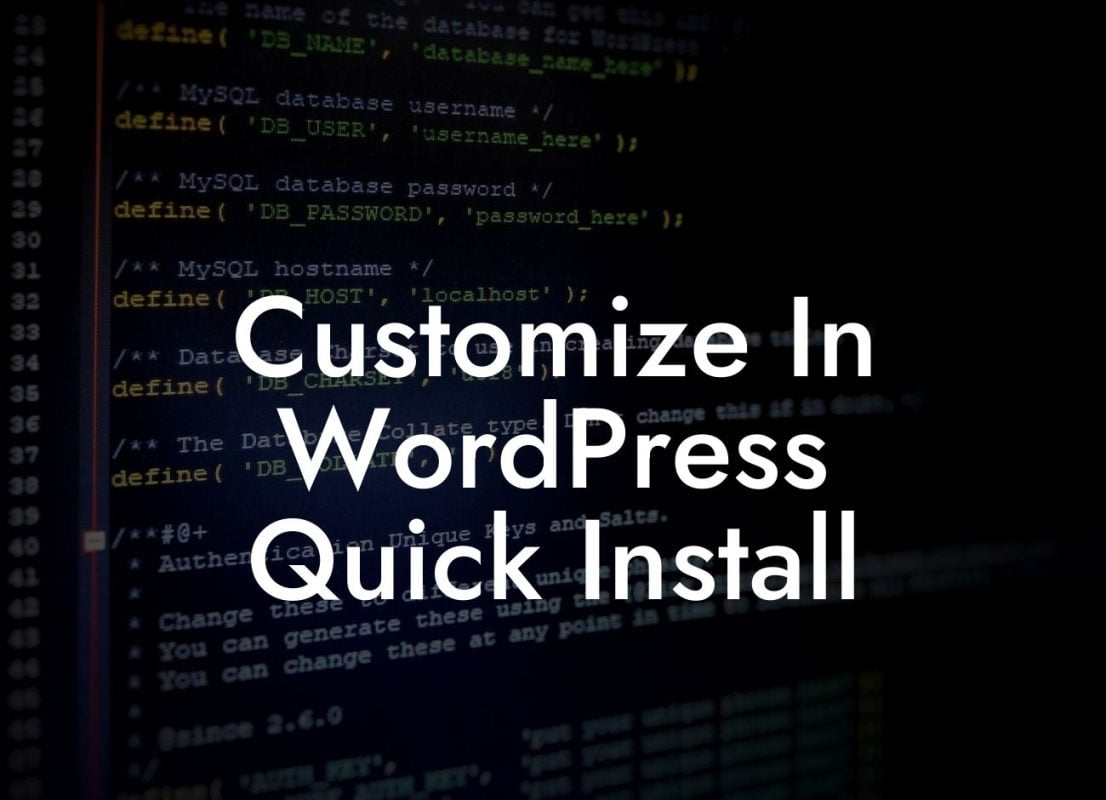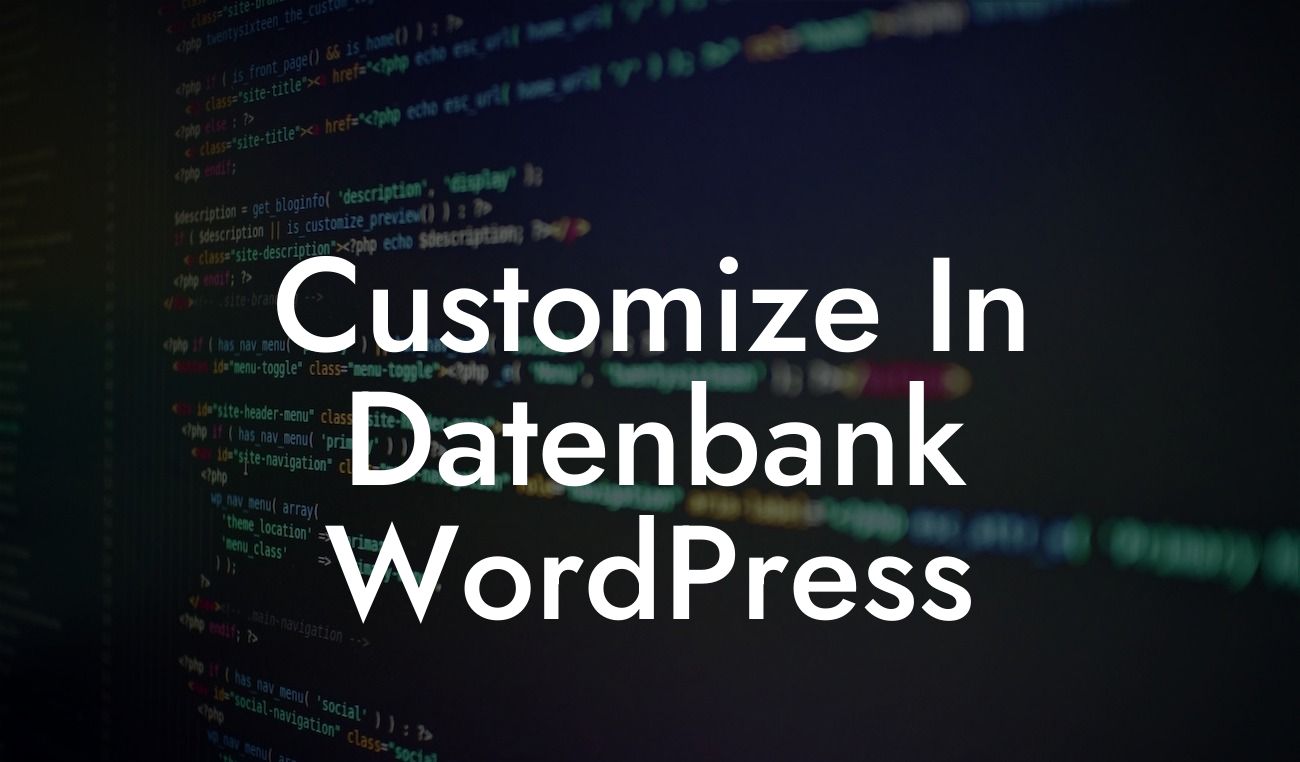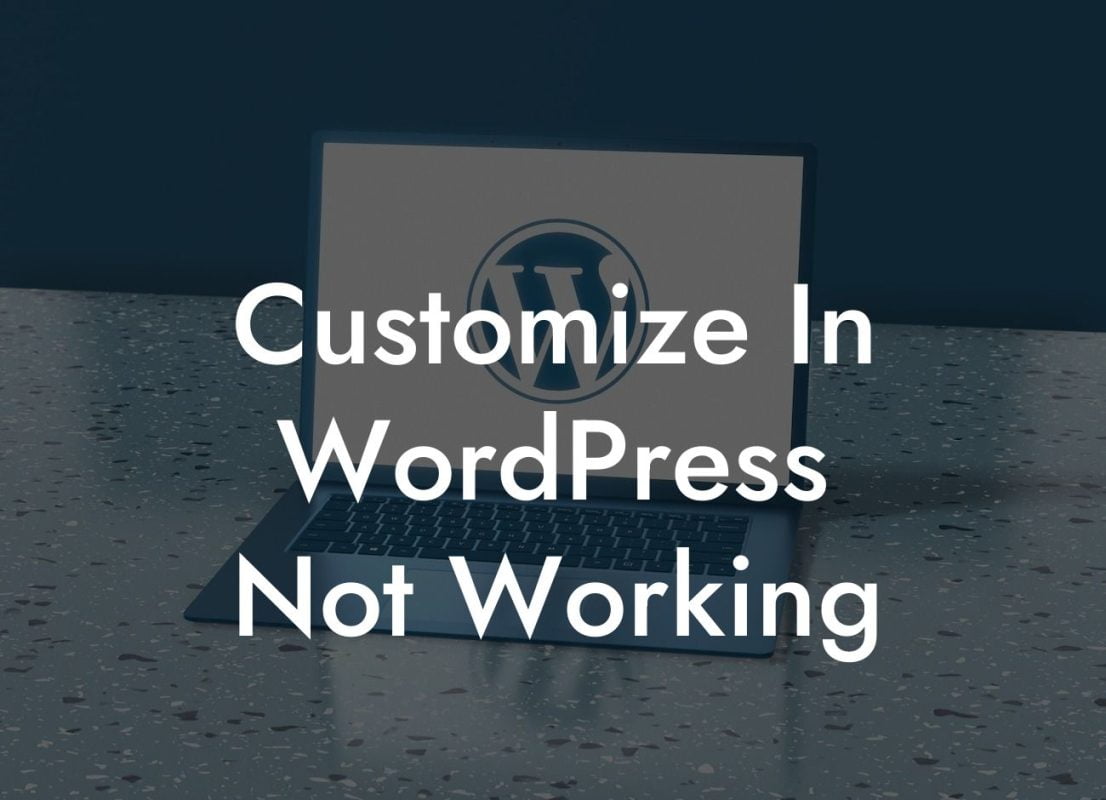In today's digital world, a website is the backbone of any small business or entrepreneurial venture. It serves as your online identity, a platform to showcase your products or services, and a means to communicate with potential customers. However, what would happen if all your hard work, data, and efforts were to disappear in an instant? Having a reliable backup system for your WordPress website is not only essential, but it can also save you from hours of frustration and loss. In this comprehensive guide, we will walk you through the process of backing up your WordPress site to ensure that you can always get back on track quickly and effortlessly.
Backing up your WordPress website doesn't have to be a daunting task. By following a few simple steps, you can protect your valuable data and be prepared for any unforeseen circumstances. Let's dive in and explore how you can create a robust backup system for your WordPress site.
1. Choose a Reliable Backup Solution: There are several plugins available that can assist you in backing up your WordPress site. Evaluate their features, user reviews, and compatibility before selecting the one that suits your requirements best. Popular options include UpdraftPlus, Duplicator, and BackWPup.
2. Determine the Backup Frequency: Deciding how often you should back up your site depends on how frequently you update or make changes to your content. If your website experiences regular updates, consider a daily or weekly backup schedule. For sites with infrequent changes, a monthly backup may suffice.
3. Include your Database and Files: When creating a backup, it is crucial to include both your WordPress database and files. The database contains all your posts, pages, comments, and settings, while the files consist of themes, plugins, and media uploads. Make sure to enable the option to back up both components for a complete restoration process.
Looking For a Custom QuickBook Integration?
4. Store Backups Off-site: Keeping your backups on the same server as your website is not recommended, as it leaves you vulnerable to data loss in case of server failures or security breaches. Instead, utilize external storage options such as cloud services or remote servers to store your backups securely.
How To Back Up Wordpress Example:
Imagine the following scenario: You wake up one morning, excited to check your website's performance and engage with your audience, only to find that your site has been hacked or accidentally deleted. Without a proper backup system in place, all your hard work and progress could vanish in an instant. However, by implementing routine backups, you can easily restore your site to its previous state and get back on track without losing valuable data or customers.
In conclusion, backing up your WordPress website is essential for every small business and entrepreneur. By following the steps outlined in this guide, you can ensure that your online presence remains intact, even in the face of unforeseen events. Don't let your hard work go to waste - explore DamnWoo's range of powerful plugins designed exclusively for small businesses and entrepreneurs. Remember to share this article with others who can benefit from it and check out our other informative guides to elevate your online success.













